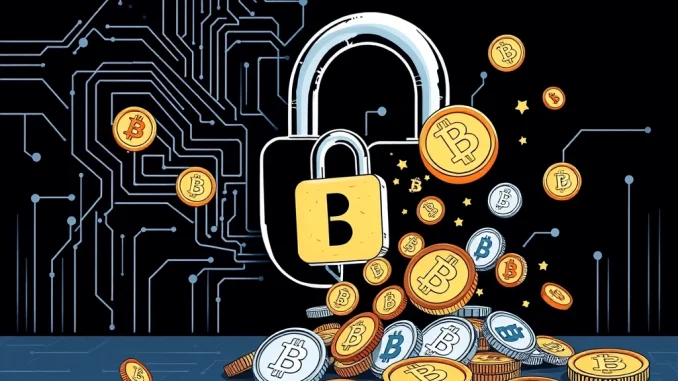
May saw a significant amount of value disappear from the crypto market due to malicious activity. According to a recent Certik report, a staggering $302 million was lost to various exploits throughout the month. While this figure is concerning, the breakdown reveals a clear trend: DeFi hacks remain the primary threat vector.
Where Did the $302 Million in Crypto Losses Come From?
The vast majority of the funds lost in May were directly attributable to vulnerabilities within decentralized finance (DeFi) protocols. Certik’s data highlights that code vulnerabilities alone accounted for over $229 million of the total losses. This underscores the inherent risks associated with complex smart contracts if not rigorously audited and secured.
Interestingly, while total crypto losses were substantial, the figure actually represented a 16.9% decrease compared to April. A major factor in this overall reduction was a sharp decline in phishing scams, which plummeted from $337 million in April to a much lower $47.6 million in May. This shift indicates that while some attack vectors are becoming less effective, others, particularly those targeting DeFi infrastructure, are still highly potent.
The Biggest Crypto Exploits of May
Several incidents contributed significantly to the month’s losses. The most impactful was an exploit targeting Cetus Protocol, which alone resulted in a loss of $223 million. This single event demonstrates how a vulnerability in one large protocol can dramatically skew the monthly security statistics.
Beyond Cetus, other notable incidents included:
- Cork Protocol: ~$12 million lost
- BitoPro: ~$11.5 million lost
- MobiusDAO: ~$2.1 million lost
- Demex Nitron: ~$1 million lost
These examples, though smaller than Cetus, still represent significant financial blows to the affected projects and their users, highlighting the diverse range of targets for attackers within the DeFi ecosystem.
Strengthening Blockchain Security: The Path Forward
Natalie Newson from Certik provided some perspective on these figures. While the May numbers were high due to the Cetus incident, she noted that code-related losses have generally seen a decline in recent years. This suggests that the industry’s focus on security audits and bug bounties may be having a positive long-term effect.
However, the continued success of major crypto exploits like Cetus indicates there is still much work to be done. Newson emphasized the growing importance of advanced security measures, including leveraging AI for audits and implementing proactive, real-time monitoring systems. These tools can help identify potential vulnerabilities before they are exploited, providing a critical layer of defense against sophisticated attackers.
Insights from the Latest Certik Report
The findings from the latest Certik report serve as a crucial reminder for everyone involved in the crypto space, from developers building protocols to users interacting with them. For developers, rigorous code audits, ongoing monitoring, and incident response planning are non-negotiable. For users, understanding the risks associated with DeFi, choosing protocols with strong security track records, and staying informed about potential threats are essential steps to protect assets.
The $302 million lost in May underscores the ongoing battle for security in the decentralized world. While progress is being made, vigilance and continuous improvement in blockchain security practices are paramount to mitigating the risks posed by DeFi hacks and other malicious activities.
Conclusion: Staying Safe in a Risky Landscape
May’s substantial crypto losses, primarily driven by DeFi hacks targeting code vulnerabilities, highlight the persistent security challenges in the decentralized finance space. The Certik report provides valuable insights into the nature of these threats, emphasizing the need for robust blockchain security measures, including AI-powered audits and proactive monitoring, to combat large-scale crypto exploits. While the overall trend in code losses may be improving over time, the sheer impact of major incidents like the Cetus exploit serves as a stark reminder that the industry must remain highly focused on security to protect user funds and foster trust.



